Candidates for GIJN Board of Directors 2016
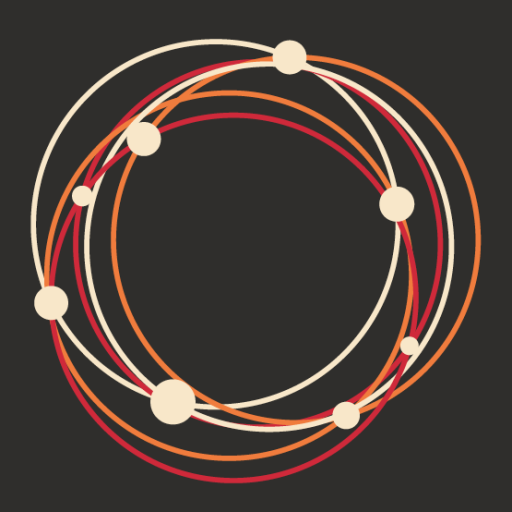 Here are candidates for the GIJN Board of Directors, which will be voted on electronically by GIJN member organization representatives. GIJN members can vote for a maximum of four at-large board members.
Here are candidates for the GIJN Board of Directors, which will be voted on electronically by GIJN member organization representatives. GIJN members can vote for a maximum of four at-large board members.
Regional members from Europe, Asia/Pacific, Sub-Saharan Africa are also eligible to choose one member to represent their respective region.
Candidates had until May 15, 2016 to be nominated.
Candidates for Board of Directors
All candidates are listed below in alphabetical order:
Anton Harber (Africa)
 Anton Harber was founder-editor of the anti-apartheid newspaper the Weekly Mail (now the Mail & Guardian). He is now Editor-in-Chief of South Africa’s leading news channel eNCA, Caxton Professor of Journalism at the University of the Witwatersrand, Johannesburg, and chair of the Freedom of Expression Institute. He is convenor of judges for South Africa’s biggest journalism prize, the Taco Kuiper Investigative Journalism Awards and Grants. Harber’s books include Diepsloot (Jonathan Ball, 2011), winner of the Recht Malan Prize, and The Gorilla in the Room (Mampoer Shorts, 2013). Harber co-edited the first two editions of The A–Z of South African Politics (Penguin, 1994/6), What is Left Unsaid: Reporting the South African HIV Epidemic (Jacana, 2010), Troublemakers: The best of SA’s investigative journalism (Jacana, 2010) and contributed to Global Muckraking: 100 Years of Investigative Journalism from Around the World (New Press, 2014).
Anton Harber was founder-editor of the anti-apartheid newspaper the Weekly Mail (now the Mail & Guardian). He is now Editor-in-Chief of South Africa’s leading news channel eNCA, Caxton Professor of Journalism at the University of the Witwatersrand, Johannesburg, and chair of the Freedom of Expression Institute. He is convenor of judges for South Africa’s biggest journalism prize, the Taco Kuiper Investigative Journalism Awards and Grants. Harber’s books include Diepsloot (Jonathan Ball, 2011), winner of the Recht Malan Prize, and The Gorilla in the Room (Mampoer Shorts, 2013). Harber co-edited the first two editions of The A–Z of South African Politics (Penguin, 1994/6), What is Left Unsaid: Reporting the South African HIV Epidemic (Jacana, 2010), Troublemakers: The best of SA’s investigative journalism (Jacana, 2010) and contributed to Global Muckraking: 100 Years of Investigative Journalism from Around the World (New Press, 2014).
As a candidate for the board in GIJN, he says:
I want to strengthen the African presence and role in GIJN and ensure that we maximize support and encouragement for investigative reporting across our continent, where the network has a crucial role to pay in encouraging cross-border cooperation, sharing tools and skills and offering support to colleagues dealing with intolerant regimes. I want to ensure we are truly “global”. I want to grow investigative journalism organizations across Africa as part of our network and ensure it is done with integrity.
We are hosts to the African Investigative Journalism Conference (our 12th) in Johannesburg this November and it is important that this is fully integrated into the global network, as well as reaching into all parts of our large continent. And, of course, we are building toward the Global/African conference of November 2017 in Johannesburg, which will be critical to growing our work across this continent. We are working with GIJN on the Africa network, and my hope is to cement and build this partnership.
Journalism is changing at breathtaking speeds, and we need to ensure that we are sharing best practices and new tools, and working together to ensure the integrity and ethical standing of our and our colleagues’ work. This is a challenging time for investigative reporting, and i want to ensure that we are equipped to face those challenges – and GIJN is central to that.
Carlos Eduardo Huertas
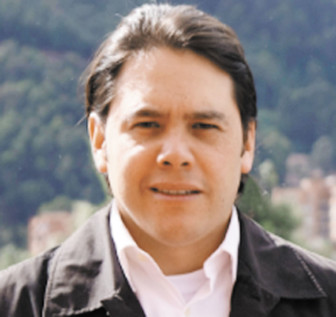 Carlos Eduardo Huertas is the Director of CONNECTAS and also the Chief of Party of the Investigative Reporting Initiative in the Americas, a project of the International Center for Journalists (ICFJ). CONNECTAS is a regional journalistic platform that promotes the interchange of information and knowledge about key issues in the Americas. It started during Huertas period as a Nieman Fellow 2012 at Harvard University with the support of the Knight Foundation. Now, this platform is consolidating in the region of the hand of the alliance with ICFJ. For more than a decade and until July 2013, Huertas worked with Semana Magazine, one of the publications top leaders in Latin America and he was its Investigation Editor. He began his journalistic career as a correspondent for the Press and Society Institute (IPYS) in monitoring Press Freedom and Expression in Colombia. In 2006 he founded Consejo de Redacción (CdR), a professional association in Colombia that promotes investigative journalism. He has been honored as an honorary member of CdR; as well as the Forum of Journalists of Argentina (FOPEA), and as Master Guest of Gabriel Garcia Marquez Foundation for New Latin American Journalism (FNPI). He also is member of the International Consortium of Investigative Journalism (ICIJ) since 2011, and he has participated in several of its investigations, including Swiss Leaks and Panama Papers. It is part of the first elected board of Global Investigative Journalism Network (GIJN). His reports on corruption, human rights violations, and environmental issues have earned him several national and international awards. He was part of the winning teams of the Award of the Inter American Press Association in 2015, the King of Spain Award (2008), and the IPYS – Tilac Award for the best investigative report in Latin America (2007, 2009).
Carlos Eduardo Huertas is the Director of CONNECTAS and also the Chief of Party of the Investigative Reporting Initiative in the Americas, a project of the International Center for Journalists (ICFJ). CONNECTAS is a regional journalistic platform that promotes the interchange of information and knowledge about key issues in the Americas. It started during Huertas period as a Nieman Fellow 2012 at Harvard University with the support of the Knight Foundation. Now, this platform is consolidating in the region of the hand of the alliance with ICFJ. For more than a decade and until July 2013, Huertas worked with Semana Magazine, one of the publications top leaders in Latin America and he was its Investigation Editor. He began his journalistic career as a correspondent for the Press and Society Institute (IPYS) in monitoring Press Freedom and Expression in Colombia. In 2006 he founded Consejo de Redacción (CdR), a professional association in Colombia that promotes investigative journalism. He has been honored as an honorary member of CdR; as well as the Forum of Journalists of Argentina (FOPEA), and as Master Guest of Gabriel Garcia Marquez Foundation for New Latin American Journalism (FNPI). He also is member of the International Consortium of Investigative Journalism (ICIJ) since 2011, and he has participated in several of its investigations, including Swiss Leaks and Panama Papers. It is part of the first elected board of Global Investigative Journalism Network (GIJN). His reports on corruption, human rights violations, and environmental issues have earned him several national and international awards. He was part of the winning teams of the Award of the Inter American Press Association in 2015, the King of Spain Award (2008), and the IPYS – Tilac Award for the best investigative report in Latin America (2007, 2009).
As a candidate for the board in GIJN, he says:
I work with the conviction that networks allow journalists help to do a better journalism, and it is enhanced exponentially when done with a transnational perspective.
This is reflected in the work that is promoted in the Americas since CONNECTAS, whose focus is the journalistic production but has a strategy that allows us to support and strengthen the capacities of colleagues. This enabled us to identify new talents that make a brave and hard work, that we seek to articulate with other local and regional projects.
Being on the board of GIJN will allow me to continue helping to make these bridges within the continent, and with other interesting experiences that we have to learn how that exist in Arab countries, Eastern Europe and Africa. A purpose that surely will result in new good stories and great synergies.
In my first term as part of the board of GIJN, I was aware of new linkages of Latin American organizations for being members, also accompanied the reflections that were given to open the possibility that organizations other nature could be added to the Global Network given the context of restrictions faced by some countries in the region. Also I worked with the Direction of GIJN designing formulas for members to seek funds locally, to allow them to participate in the Conference in Lillehammer, Norway.
Since 2007 I had the opportunity to participate in the Conference held in Toronto, Canada, I have seen the consolidation of GIJN, a model that has been inspiring for this decade of work according to the same ideals, and has allowed me to contribute to several organizations in the region and established new local leaderships. An experience that has been rewarding and meaningful. I want to continue serving from this position. If I have your support, you can have the same willingness to be an articulator to provide new opportunities for colleagues.
Oleg Khomenok (Europe)
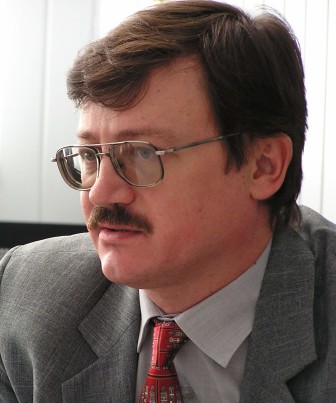 Oleg Khomenok, Senior Media Advisor of Internews Network, program manager of Strengthening of Investigative Reporting in Ukraine project (Slidstvo.info), has above 20 years of experience in journalism, media education, and managing investigative reporting and media support projects in the post-Soviet media environment. Oleg has eight years of experience working as a reporter investigating political campaigns and ethnic minority issues in Crimea. He had been involved in establishing SCOOP project activities in Ukraine and Belarus since 2003, and has extensive experience consulting, coordinating, and networking investigative reporters. He is co-founder of Crimean Information and Press Center and Regional Press Development Institute, two Ukrainian members of GIJN. During the past decade Khomenok conducted several dozen trainings in investigative journalism techniques and strategies for investigative reporters in Ukraine, Russia, Belarus, Moldova, and other countries of the Caucasus and Central Asia. Coordinating an Award winning project YanukovychLeaks.org, Oleg together with a team of Ukrainian reporters organized tens of thousands of financial documents from the former Ukrainian president, rescuing and publishing them online.
Oleg Khomenok, Senior Media Advisor of Internews Network, program manager of Strengthening of Investigative Reporting in Ukraine project (Slidstvo.info), has above 20 years of experience in journalism, media education, and managing investigative reporting and media support projects in the post-Soviet media environment. Oleg has eight years of experience working as a reporter investigating political campaigns and ethnic minority issues in Crimea. He had been involved in establishing SCOOP project activities in Ukraine and Belarus since 2003, and has extensive experience consulting, coordinating, and networking investigative reporters. He is co-founder of Crimean Information and Press Center and Regional Press Development Institute, two Ukrainian members of GIJN. During the past decade Khomenok conducted several dozen trainings in investigative journalism techniques and strategies for investigative reporters in Ukraine, Russia, Belarus, Moldova, and other countries of the Caucasus and Central Asia. Coordinating an Award winning project YanukovychLeaks.org, Oleg together with a team of Ukrainian reporters organized tens of thousands of financial documents from the former Ukrainian president, rescuing and publishing them online.
As a candidate for the board in GIJN, he says:
I’m running for the second term since the GIJN need to extend the activities to the post-Soviet countries. Thus during my first term in GJIN board the number of Ukrainian members of the Network grew up to 7 local non-profit organizations developing Investigative Reporting in the emerging environment.
Last two years of my work in a big scale were dedicated to the Central Asia. I invested a lot of efforts through trainings and consultancies in helping the Tajikistan and Kyrgyzstan investigators to set up their countries’ networks and will join the GIJN and I see this as one of my assignments as the Board member.
It is my strong believe that spreading the information about GIJN opportunities among the Cyrillic Investigative Reporting part of the world will ensure the Global Network and investigative reporters of the former Soviet countries will communicate and GIJN will expand and spread activities to the professionals limited with English language skills.
I will continue to develop a network of IR professionals of Ukraine and other FSU countries as well as seeking for the sources of diversification of IR support of GIJN in this part of the world.
Eva Jung (Europe)
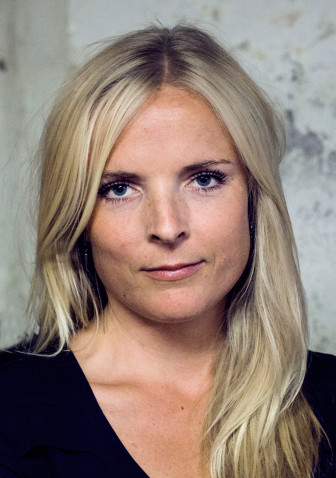 Eva Jung is a reporter with the investigative team at the daily Berlingske in Copenhagen, Denmark, and is vice chair of The Danish Association for Investigative Journalism. At Berlingske, she has worked full time at the newspaper’s investigative team since 2011. Here, she has made a wide spectre of in depth stories. The first case of matchfixing in Danish football. That Danish pension funds and local governments against the internal rules invested in government bonds issued in some of the world’s most corrupt and dictatorial regimes in Africa. How the catholic church of Denmark for decades kept sexual assaults hidden from the public, moved priest to new parishes and along the way told the stories of abused children that are now men. In 2015 the data project #Tracked (#Sporet in Danish), mapping all personal metadata of two politicians down to every last detail won the Scandinavian and the Global Data Journalism Award. Eva Jung is the vice chair of the Danish Association for Investigative Journalism (FUJ) since 2013. Within the association, that dates back to 1989, she organizes a wealth of events for members and the yearly investigative conferences for FUJ.
Eva Jung is a reporter with the investigative team at the daily Berlingske in Copenhagen, Denmark, and is vice chair of The Danish Association for Investigative Journalism. At Berlingske, she has worked full time at the newspaper’s investigative team since 2011. Here, she has made a wide spectre of in depth stories. The first case of matchfixing in Danish football. That Danish pension funds and local governments against the internal rules invested in government bonds issued in some of the world’s most corrupt and dictatorial regimes in Africa. How the catholic church of Denmark for decades kept sexual assaults hidden from the public, moved priest to new parishes and along the way told the stories of abused children that are now men. In 2015 the data project #Tracked (#Sporet in Danish), mapping all personal metadata of two politicians down to every last detail won the Scandinavian and the Global Data Journalism Award. Eva Jung is the vice chair of the Danish Association for Investigative Journalism (FUJ) since 2013. Within the association, that dates back to 1989, she organizes a wealth of events for members and the yearly investigative conferences for FUJ.
As a candidate for the board in GIJN, she says:
I care about GIJN. I want to take part in keeping it in good shape.
The network has showed me how we can help each other across the world from Copenhagen to Kiev and Cape Town. We share our techniques, tools and tips. We cooperate instead of competing.
The Panama Papers has recently showed us how powerful investigative journalism can be when we work together. That trust was a key word and contracts were not necessary. Even when 400 journalists in more than 100 media organizations had access to sensitive material.
It has been 15 years since the first meeting, that would later become GIJN. I have taken part of the last three global conferences.
Every time I have returned back to the office, I have brought some tip or contact that became an investigative story at the newspaper. This has given me a great belief in the power of these global conferences and the network. It has also given me the ambition to keep them up to date so that colleagues around the world can hopefully have the same fruitful experience in the years to come.
When we convene for meetings and workshops in the Danish Association for Investigative Journalism (FUJ) I feel content when we succeed in giving members new tools or inspiration for their work. I want to do this on a global scale as well.
Investigative journalists around the world needs support from a strong network in a time where in depth journalism is under pressure from technical advances in the field of surveillance, hackers and more down to earth threats like mediums cutting down on investigative teams.
Nils Mulvad (Europe)
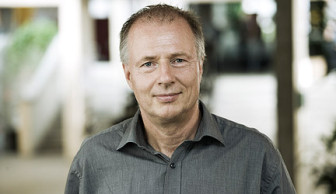 Nils Mulvad is a co-founder of the Global Network for Investigative Journalism and other international networks such as Farmsubsidy.org. He was CEO for the Danish International Center for Analytical Reporting 2001-2006, European journalist of the year in 2006, and he also teaches data and web courses for journalists with focus on using social and mobile media. Nils Mulvad is also co-founder of the new Danish Centre, Investigative Reporting Denmark. He is editor at Kaas & Mulvad.
Nils Mulvad is a co-founder of the Global Network for Investigative Journalism and other international networks such as Farmsubsidy.org. He was CEO for the Danish International Center for Analytical Reporting 2001-2006, European journalist of the year in 2006, and he also teaches data and web courses for journalists with focus on using social and mobile media. Nils Mulvad is also co-founder of the new Danish Centre, Investigative Reporting Denmark. He is editor at Kaas & Mulvad.
As a candidate for the board in GIJN, he says:
As chairman of the GIJN Membership Committee, I will continue to work for being open for new members, developing the rules for becoming a member so they are in line with modern investigative journalism, and also keeping the demands high for what we accept as investigative journalism.
I will keep helping to spread the network to Asia, Africa, and elsewhere outside Europe and North America.
I will help young talent get more training and responsibility inside the organisation.
I will support and help the secretariat and others with practical advice whenever I can add something.
Syed Nazakat (Asia/Pacific)
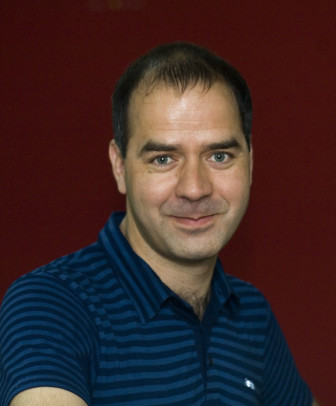 Syed Nazakat is an award-winning journalist, media entrepreneur and editor-in-chief of the Centre for Investigative Journalism, a non-profit organization he founded to promote the cause of watchdog journalism in India. In 2015 he also set-up a data journalism initiative called DataLEADS which conducts data analysis, boot camps and runs India’s first data-driven website dedicated to healthcare reporting, called Health Analytics India. He has more than 16 years of experience across broadcast, print and online journalism, and has reported from over 25 countries. He covered the war in Afghanistan, political turmoil in Nepal, developmental issues in Laos and Cambodia, unrest in Thailand, the conflict in India’s Kashmir region, India-Pakistan border tension and the civil war in South Sudan. He was the first Indian journalist to report from an Al-Qaeda rehabilitation camp in Saudi Arabia and in 2013 he secured unprecedented access to the military detention facility in Guantanamo Bay, Cuba to report about prison abuse cases.
Syed Nazakat is an award-winning journalist, media entrepreneur and editor-in-chief of the Centre for Investigative Journalism, a non-profit organization he founded to promote the cause of watchdog journalism in India. In 2015 he also set-up a data journalism initiative called DataLEADS which conducts data analysis, boot camps and runs India’s first data-driven website dedicated to healthcare reporting, called Health Analytics India. He has more than 16 years of experience across broadcast, print and online journalism, and has reported from over 25 countries. He covered the war in Afghanistan, political turmoil in Nepal, developmental issues in Laos and Cambodia, unrest in Thailand, the conflict in India’s Kashmir region, India-Pakistan border tension and the civil war in South Sudan. He was the first Indian journalist to report from an Al-Qaeda rehabilitation camp in Saudi Arabia and in 2013 he secured unprecedented access to the military detention facility in Guantanamo Bay, Cuba to report about prison abuse cases.
Prior to his current role he was special correspondent at India’s leading news magazine The Week. Before that he was based in Bangkok, Thailand with Asia News Network (ANN) as an assistant news editor. Nazakat has been the recipient of several journalism awards including India’s prestigious Ramnath Goenka Excellence in Journalism Award, Karmaveer Puraskaar national award and Christiane Amanpour Award for Religion Journalism.
Over the past decade, Nazakat has produced stories that revealed India’s secret torture chambers, the country’s rendition program in Nepal, suicides in the Indian military, arms smuggling in Bangladesh, misuse of anti-terrorism laws, corruption in arms procurement, poor condition of Indian prisons and women trafficking from Afghanistan.
His work has also appeared in TIME magazine, The Daily Star and Christian Science Monitor.
Nazakat is a fellow at the Konrad Adenauer Asian Center for Journalism at the Ateneo de Manila University, Philippines and has taught as visiting faculty at Convergent Journalism program at AJK Mass Communication Research Centre – Delhi and at ACFJ, Manila. He is also president of Society of Asian Journalists (SAJ), an independent organization established by the ACFJ alumni & supported by KAS, Singapore to serve free & independent journalism in Asia.
As a candidate for the board in GIJN, he says:
I’ve closely seen the great importance of the GIJN’s work and its network.
While I am writing these words, I kept being pulled back to that evening in Geneva when I was first introduced to GIJN in 2010. The event was Daniel Pearl Award for Outstanding International Investigative Reporting. My two stories, exposing a chain of secret torture chambers in India and the country’s rendition program in Nepal were shortlisted for the prestigious award. It was great honour and experience.
On that night, over 1000 editors and investigative journalists from around the world were gathered to celebrate the courage, persistence and determination of journalists who go beyond the headline and their national frontiers to do watchdog reporting. In all its diversity, all its warmth, and all its potential I was greeted as an old friend by people I have never met before.
Since then every time when you travel for GIJN, you travel with a different sense of perspective and a different sense of purpose. There is an awareness of being part of a global community of watchdog journalists. Working together is an ultimate success. It changes the nature of what we can undertake and achieve. It was my association with GIJN which encouraged me to set-up India’s first Centre for Investigative Journalism. In a country where there are some 70,000 newspapers and some 80 TV news channels with a strong traditions of free media, CIJ, India stands out as a modest but a pioneering institute of watchdog journalism. Today the centre provides resources, skills and training to a new generation of watchdog journalists in India.
Asia is of course a vast, culturally diverse continent and in each country journalists are facing their own set of opportunities and challenges. As the President of the Society of Asian Journalists I closely follow developments in the region. As the media landscape is continuously shifting, we face critical choices in Asia about new structures of newsrooms, storytelling and collaboration.
In this context, I see a bigger role of GIJN in Asia. If elected I will continue to work to strengthen GIJN’s outreach in the region. I want to play my part in promoting team work among Asian journalists and organisations so that we can supersede the traditional silos that have divided journalists in the region for decades because of regional politics and barriers and replace them with networks of partnerships and collaborations.
Bruce Shapiro (North America)
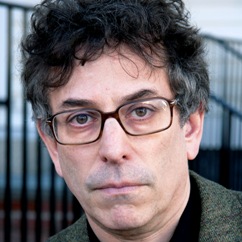 Bruce Shapiro is executive director of the Dart Center for Journalism and Trauma, a project of the Columbia University Graduate School of Journalism encouraging innovative reporting on violence, conflict and tragedy worldwide. He is also director of Columbia’s Professional Programs Division, and for 20 years has taught investigative reporting at Yale University. As an award-winning human-rights reporter, Shapiro is a contributing editor at The Nation and the U.S. correspondent for Late Night Live on the Australian Broadcasting Corporation’s Radio National. His books include Shaking the Foundations: 200 Years of Investigative Journalism in America.
Bruce Shapiro is executive director of the Dart Center for Journalism and Trauma, a project of the Columbia University Graduate School of Journalism encouraging innovative reporting on violence, conflict and tragedy worldwide. He is also director of Columbia’s Professional Programs Division, and for 20 years has taught investigative reporting at Yale University. As an award-winning human-rights reporter, Shapiro is a contributing editor at The Nation and the U.S. correspondent for Late Night Live on the Australian Broadcasting Corporation’s Radio National. His books include Shaking the Foundations: 200 Years of Investigative Journalism in America.
As a candidate for the board in GIJN, he says:
I am running for a second term on the GIJN board because we are at a critical moment of growth. GIJN has matured from a loose network to an effective, well-managed organization. We see the impact not only in the growth of our global and regional conferences, and in the vigorous communication and information-sharing facilitated by the GIJN, but in the spectacular rise in collaborative, cross-border investigative reporting projects which depend on the professional relationships and training we have fostered.
We already know some of the key challenges facing GIJN going forward. The Kathmandu Uncovering Asia conference and and Johannesburg Global Conference will test our logistical skill. We need to strengthen and diversify funding, with an eye toward building GIJN’s capacity to serve member organizations, prevent staff burnout and build a new generation of leaders. We face critical strategic choices about how to expand the network, and how to partner with our colleagues in for-profit media, without compromising mission, integrity and GIJN’s unique identity.Most important, we know that member organizations’ needs, and investigative journalism itself, are changing at breathtaking speed and GIJN needs to remain at the forefront of innovation and support.
I also believe GIJN is a powerful voice for press freedom – as a network we have special responsibilities to member organizations working under conditions of threat.
As a board member and secretary I have tried to pay particular attention to governance and strategic planning, as well as ensuring that “global” is embodied in everything GIJN does. I am informed by many years’ experience building journalism organizations, particularly as co-founder and executive director of the Dart Center for Journalism and Trauma. I am very proud of GIJN’s vigor and impact.
Margo Smit (Europe)
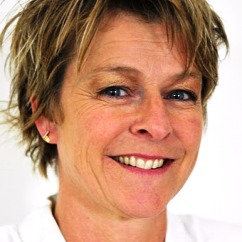 Margo Smit is (part-time) ombudsman at Dutch public broadcaster NOS and journalism teacher at Rijksuniversiteit Groningen . She is currently the vice-chair of the GIJN board and a member of the executive board. Until August 2015, she was director of the Dutch-Flemish Association of Investigative Journalists VVOJ. She received her Masters degree in Communication (specialization journalism) from Stanford University, Palo Alto, USA. She briefly worked as a reporter at the Longview Daily News, and has since researched, written and produced documentaries in Dutch and English, both for Dutch public television and for international sales. Smit freelanced as a researcher and/or reporter for several international publications and media outlets, such as TSR’s Temps Présent (Switserland), Seven Network’s Sunday Night (Australia) and ABC ‘Four Corners’ (Australia). Smit‘s former employer VVOJ in 2005 organized the third Global Investigative Journalism Conference in Amsterdam, and Smithas since contributed as a speaker and moderator to GIJC’s editions in Toronto (2007), Lillehammer (2008), Geneva (2010), Kiev (2011), Rio de Janeiro (2013) and Lillehammer again (2015). She sat on the Global Shining Light Award jury (2010), the jury of the Daniel Pearl Award (2010, 2011, 2013), the M.J. Brusseprijs (2013) and the DIG Award (2015, 2016). In 2012, Smit lead a team of over 80 European journalists to compile the report Deterrence of fraud with EU-funds through investigative journalism in EU-27. The report was written on request of the European Parliament’s Budgettary Control Committee, with Smit as principal author. Highlights can be found here. Smit is a member of Investigative Reporters and Editors (IRE) and the International Consortium of Investigative Journalists (ICIJ). She is on the advisory board of Journalismfund.eu and vice-chair of the board of the European Center for Press and Media Freedom (ECPMF, Leipzig). She is a regular contributor to Council of Europe hearings on media diversity, press freedom and the role of investigative reporting.
Margo Smit is (part-time) ombudsman at Dutch public broadcaster NOS and journalism teacher at Rijksuniversiteit Groningen . She is currently the vice-chair of the GIJN board and a member of the executive board. Until August 2015, she was director of the Dutch-Flemish Association of Investigative Journalists VVOJ. She received her Masters degree in Communication (specialization journalism) from Stanford University, Palo Alto, USA. She briefly worked as a reporter at the Longview Daily News, and has since researched, written and produced documentaries in Dutch and English, both for Dutch public television and for international sales. Smit freelanced as a researcher and/or reporter for several international publications and media outlets, such as TSR’s Temps Présent (Switserland), Seven Network’s Sunday Night (Australia) and ABC ‘Four Corners’ (Australia). Smit‘s former employer VVOJ in 2005 organized the third Global Investigative Journalism Conference in Amsterdam, and Smithas since contributed as a speaker and moderator to GIJC’s editions in Toronto (2007), Lillehammer (2008), Geneva (2010), Kiev (2011), Rio de Janeiro (2013) and Lillehammer again (2015). She sat on the Global Shining Light Award jury (2010), the jury of the Daniel Pearl Award (2010, 2011, 2013), the M.J. Brusseprijs (2013) and the DIG Award (2015, 2016). In 2012, Smit lead a team of over 80 European journalists to compile the report Deterrence of fraud with EU-funds through investigative journalism in EU-27. The report was written on request of the European Parliament’s Budgettary Control Committee, with Smit as principal author. Highlights can be found here. Smit is a member of Investigative Reporters and Editors (IRE) and the International Consortium of Investigative Journalists (ICIJ). She is on the advisory board of Journalismfund.eu and vice-chair of the board of the European Center for Press and Media Freedom (ECPMF, Leipzig). She is a regular contributor to Council of Europe hearings on media diversity, press freedom and the role of investigative reporting.
As a candidate for the new board in GIJN, she says:
In times when cross border journalism is taking root like never before (with ICIJ, OCCRP and Journalismfund as only three examples of flourishing cross border initiatives), GIJN as a global umbrella is more indispensable than ever. For a global organization to be as effective as possible, it takes a strong staff and a committed board, both with the experience to function within a cultural and journalistic diverse ecosystem.
For the last two years, in my function of vice-chair of the GIJN board and member of its executive board I have seen the leadership of the GIJN director, deputy-director and staff from close-up, seen the organization expand and the services rendered to members and journalists all over the world grow at an unprecedented rate. I played my part in overseeing the developments, advising the staff and representing GIJN when possible. I would like to continue doing so, for I believe experience on the board is important if the growth of the organization remains to be healthy, organizationally, practically and financially.
Even though I am no longer the director of VVOJ, the Dutch-Flemish association of Investigative journalists, the board of VVOJ has asked me to put myself up for re-election on behalf of VVOJ specifically for the reasons of keeping experience on the board. VVOJ itself wants to remain an active member of the GIJN board, knowing by organizing a global conference itself in 2005 how important the helping hand of GIJN can be to conference organizers, emerging investigative platforms and members.
Even when currently not so active as an investigative reporter myself due to other obligations, I remain a vocal ambassador of cross border and investigative journalism in general – through speeches and in writing – and of GIJN in particular.









